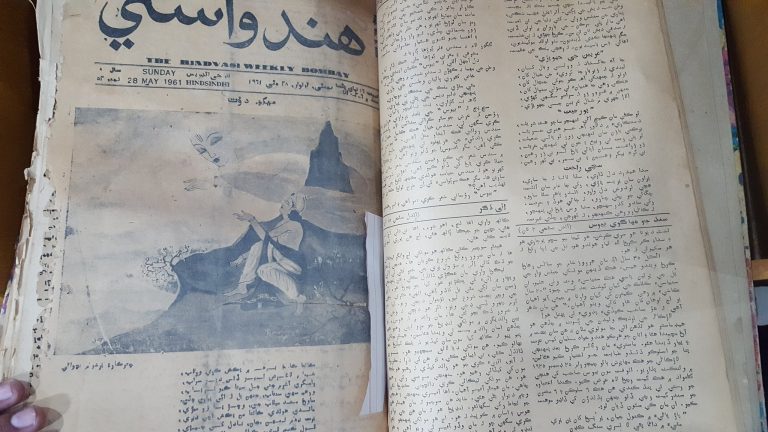
Hindvasi is one of the oldest newspapers of Sindhi language currently being published from Mumbai. During British Raj it faced many trials and tribulations and was even charged of sedition. Here are some excerpts of the court verdict in sedition case.
Sindh Courier
Jethmal Parsram Gulrajani, Editor of Hindvasi newspaper, was tried in the Court of the First Class Magistrate Hyderabad under Section 124-A and 153-A of Indian Penal Code in a case ‘Crown versus Jethmal Parsram Gulrajani, as mentioned in the detailed judgment issued by the judge H. T. Sorley. The case was based on an article written about the massacre in Delhi titled ‘Martyrdom in Delhi’, in which Jethmal had quoted the couplets of Shah Abdul Latif Bhittai. Jethmal was charged with two offences. In his verdict, issued on May 15, 1919 and spread over several pages, he reviewed the ‘facts of the case’ and pronounced the sentence in last part of the judgment. Sindh Courier reproduces the excerpts/paragraphs related to the sentence. The entire ‘review of the case’ against Jethmal Parsram contained the reference of arguments of both sides – the prosecution and the defense.
For background of the case, also read: Hindvasi Sedition Case Part -I and Part- II
Judge H. T. Sorley, who later earned name and fame as a scholar on Sindh studies, writes that in the public interest, it is essential that an example should be made of the slipshod journalism that has characterized the methods of the Hindvasi. It is necessary in the best interest of India itself that such writing should cease and that this case should serve as a wholesome warning to others.
According to judgment document, the circulation of Hindvasi newspaper at that time was 800 to 900 and it was read by educated people in major towns of Sindh.
Judge claimed that in passing sentence, he had carefully considered the law. According to him, Jethmal Parsram deserved 4-year imprisonment in an offence under Section 124-A but he had no powers to award him such punishment in one offence. The judge therefore ordered that Jethmal Parsram shall undergo 2-year imprisonment in each so-called offence and that the second imprisonment shall start after completion of first 2-year imprisonment.
Excerpts from Judgment
The accused is charged with bringing or attempting to bring into hatred or contempt, or with exciting or attempting to excite disaffection towards the Government established by law in British India, in respect of an article headed ‘Martyrdom in Delhi’ which he printed and published in the Hindvasi dated April 5, 1919 and further in respect of the same article he is charged with promoting or attempting to promote feelings of enmity or hatred between European and Indian subjects of His Majesty.
In paragraph 12 of the judgment, the judge says, “The accused is therefore convicted in respect of an offence under Section 124-A, and in respect of an offence under Section 153-A, and now we have to consider what punishment should be awarded.
- In the first place the accused has been proved guilty of two separate offences, for which he may be separately punished.
- In the second place the accused is a man of education and he is writer in Sindhi of considerable fluency and skill. He occupies editor of the Hindvasi.
There is practically no difference between the gravity of the two offences of which the accused has been convicted. I do not consider that the accused should receive any lighter punishment for the 153-A offence than he fully deserves for the 124-A offence. In my opinion four years would not be excessive for the 124-A offence. I have no powers to pass such a sentence directly. But under Section 35 of the Code of Criminal Procedure I have power to award imprisonment up to four years for separate offences.
I hereby direct that Jethmal Parsram Gulrajani, who has been accused of an offence – punishment under Section 124-A – rigorous imprisonment for a period of two years; and that in respect of the offence punishable under Section 153-A he shall undergo rigorous imprisonment for a period of two years; and I further direct that the second sentence shall take action on the expiry of the imprisonment awarded in respect of the offence punishable under Section 124-A of Indian Penal Code.
Click here to read detailed Judgment
____________________